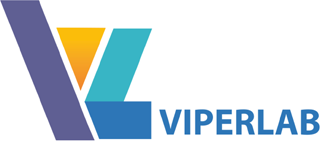In the Horizon Europe SolMates project, a group of European and international research institutions in collaboration with pioneering companies will develop a novel industrial, scalable technology for producing flexible, durable, made-to-measure, two-terminal CIGSe/perovskite multijunction thin-film PV module that combines efficiencies well beyond today’s standards with low environmental impact and unprecedented flexibility in application.
Join SolMates Project team!
They are looking for a Research Data Steward (TV-L E13) to work in the project SolMates . All genders are encouraged to apply.
Job Description
- Leading the development of the web-based research data management (RDM) platform NOMAD developed by FAIRmat within the SolMates project, offering guidance to the research partners.
- Overseeing the full software development lifecycle in the project, from requirements analysis, specification and implementation to testing, versioning, release, and change management.
- Developing (meta-)data schemas, data converters, and electronic lab notebooks, in the context of advanced solar cell research.
- Implementing cloud-based image analysis tools synchronized with the RDM platform's database.
- Ensuring continuous availability to support project members in an agile work environment, including shorter and possibly longer stays at partner institutions for hands-on collaborations.
- Representing the project by presenting its contributions and innovations at (inter)national workshops, conferences, and in scientific publications.
Requirements
- Completed academic degree (master or similar) or Ph.D. in physics, materials science, computer science, or another relevant field.
- In-depth domain-specific knowledge of materials science (synthesis, characterization, and PV devices).
- Expert knowledge in object-oriented programming in Python, data modeling, and workflows.
- Experience with Linux, Docker, Kubernetes, and related virtualization technologies, as well as with Git, CI/CD, GUI, and UX development tools and technologies is a plus.
- Knowledge of Python. Experiences with type systems (e.g. Pydantic) and schemas (e.g. json-schema), HTTP and REST APIs are desirable.
- Experience with data visualization and scientific workflows.
- Excellent written and verbal communication skills in English.
- Strong teamwork skills.
What they offer?
A stimulating, multidisciplinary working environment, a pay scale classification (TV-L), ample development opportunities, and flexible working hours. The SolMates team is based at the Humboldt-Universität zu Berlin. The project is funded until November 30, 2026.
Fixed term contract until 30 November 2026. The salary is based on the Collective Agreement for the German Public Service TV-L E13
Who they are?
In the European project SolMates, a group of European and international research institutions in collaboration with pioneering companies will develop a new type of thin-film solar cell that combines efficiencies well beyond today’s standards with low environmental impact and unprecedented flexibility in application. By combining two thin-film photovoltaic technologies in a tandem solar cell on a lightweight, flexible foil substrate, new applications like photovoltaics integrated in electronic devices, vehicles, fabric, and airplanes will be possible and economically feasible.
The tandem devices will be constructed from well-known and commercially available CIGS bottom cells that absorb the long wavelength light, combined with highly efficient top cells made of short-wavelength-light-absorbing perovskites. A unique interconnection strategy based on laser structuring and printing technologies will enable a made-to-measure photovoltaic module fabrication.
The aim of the project is to upscale existing laboratory-size devices to an area of more than 100 cm2 reaching a power conversion efficiency of at least 25% and to transfer the technology to industry to enable a future mass production.
The working team role in this ambitious project is pivotal. They will lead the development of the web-based research data management platform for materials synthesis and device characterization. They will oversee the installation and creation of (meta-)data schemes for the research at partner institutions, develop data converters, and electronic lab notebooks. Furthermore, they will implement cloud-based tools for image analysis built on top of the research management tools.
How to apply?
| |
FAIRmat Web site |
Excited by the prospect of joining SolMates Team?
To apply, please submit a single PDF file containing your motivation letter, CV, certificates, and references by e-mail to Victoria Coors and Pepe Márquez (fairmat@physik.hu-berlin.de)
Contacts
| |
FAIRmat | ||
| fairmat@physik.hu-berlin.de |


